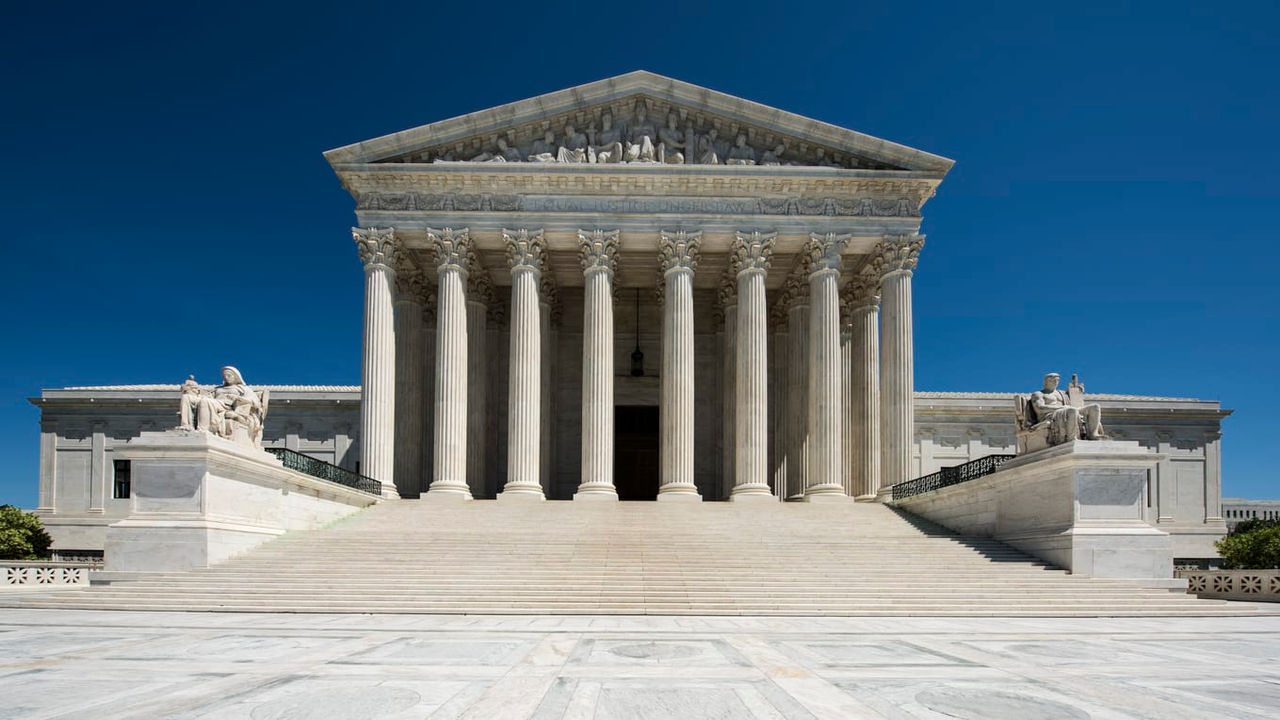A plaintiff who prevailed before the U.S. Supreme Court in a 2020 LGBTQ rights decision has settled his claim for $825,000. The Supreme Court ruled in its decision that Title VII of the Civil Rights Act of 1964 prohibits discrimination based on sexual orientation or gender identity. We've gathered articles on the news from SHRM Online and other media outlets.
Settlement Approved
The Clayton County, Ga., Board of Commissioners approved the settlement for Gerald Bostock, his lawyer said. Bostock had sued the county, which is near Atlanta, claiming he was fired from his position as court child welfare services coordinator in 2013 because he is gay.
"No one should go to work fearful of losing their job because of who they are, who they love or how they identify," Bostock said during a news conference Nov. 4.
Membership in Gay Softball League
In his lawsuit, Bostock alleged he was fired soon after he joined Atlanta's gay softball league, despite having a sterling work record.
Bostock's former boss admitted in pretrial testimony and a diary he kept that he was concerned about Bostock's outreach in the gay community in Atlanta. Bostock's former boss accused him of misspending court funds and said his termination had nothing to do with his orientation.
(The Atlanta Journal-Constitution)
'Long Experience'
"Words can hardly express how happy I am that this is now over," Bostock said. "This nine-year journey has been a tremendously long experience for me. It has taken its toll healthwise—mentally, physically and financially."
LGBTQ Status Is Irrelevant Consideration in Employment Decisions
"An individual's homosexuality or transgender status is not relevant to employment decisions," wrote Justice Neil Gorsuch for the Supreme Court in 2020. "That's because it's impossible to discriminate against a person for being homosexual or transgender without discriminating against that individual based on sex."
Federal Judge Strikes Down EEOC's LGBTQ Guidance
In October, a federal district court concluded that the U.S. Equal Employment Opportunity Commission (EEOC) misapplied the Supreme Court's ruling in Bostock v. Clayton County, Ga., in its June 2021 technical assistance document on LGBTQ workplace discrimination protections. "The June 15 guidance imposes dress-code, bathroom and pronoun accommodations as 'existing requirements under the law' and 'established legal positions' in light of Bostock and prior EEOC decisions interpreting Title VII," Judge Matthew Kacsmaryk wrote. "But Title VII—as interpreted in Bostock—does not require such accommodations."
An organization run by AI is not a futuristic concept. Such technology is already a part of many workplaces and will continue to shape the labor market and HR. Here's how employers and employees can successfully manage generative AI and other AI-powered systems.




